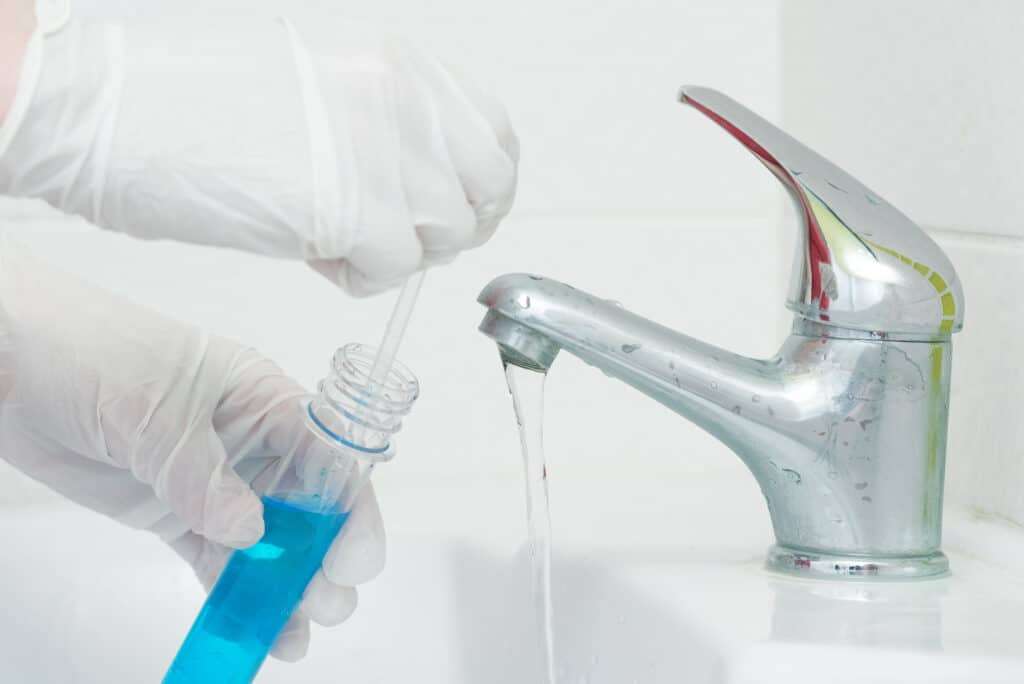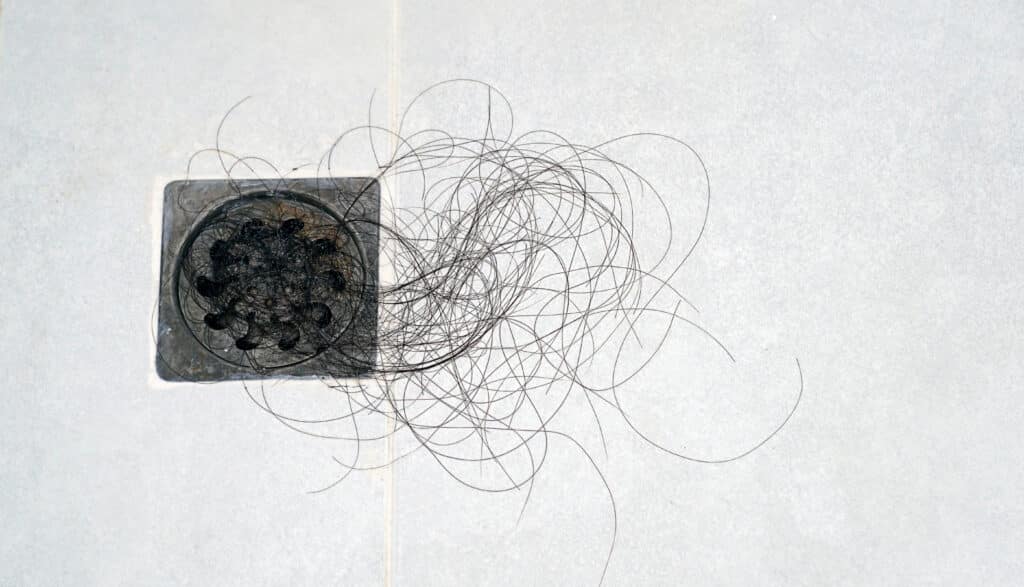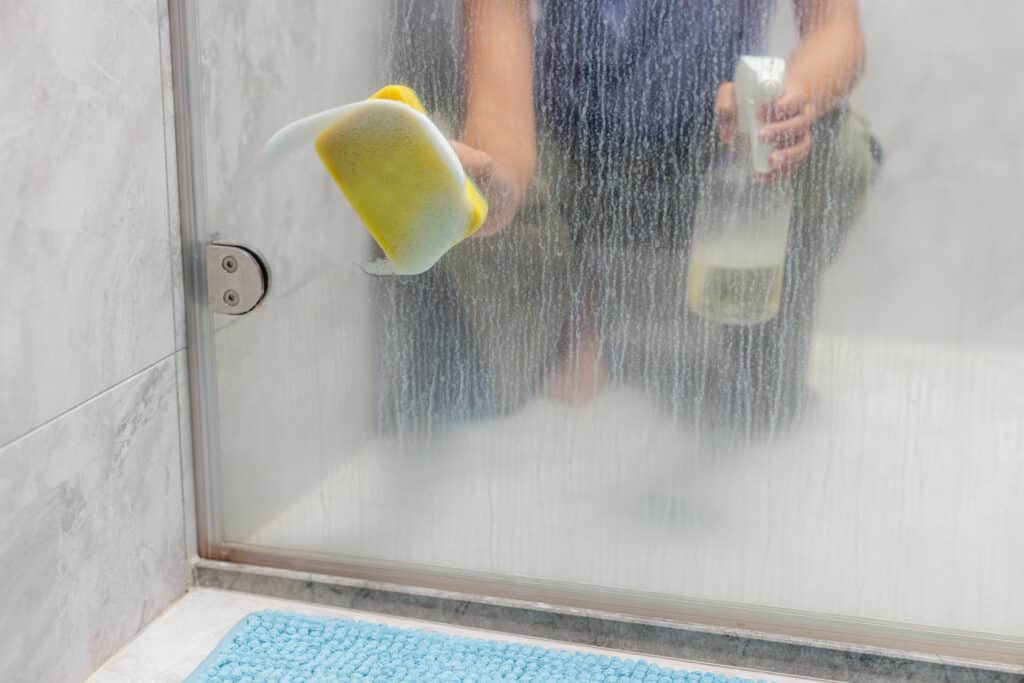Hard water is a common issue in many households. It contains high levels of minerals like calcium and magnesium. But, does hard water cause hair loss?
The link between hard water and hair loss is not clear yet. There is some evidence that hard water might negatively impact your hair.
In this article, we’ll explore the potential connection between hard water and hair loss. We will also provide practical tips on how to mitigate the effects of hard water on your hair.
How to Recognize Hard Water?

Hard water is characterized by the presence of high concentrations of minerals. Water flows through soil and rock formations underground. There, various kinds of minerals mix with water, mainly calcium and magnesium.
The level of hardness in your water depends mainly on your location. Some areas in the US have extremely hard water. Others have comparatively soft water.
You can look out for some common signs to recognize hard water in your home. These may include:
- Deposits of concentrated minerals on plumbing fixtures such as showerheads and faucets.
- Small ashy spots on your dishes and glasses after washing.
- Soap or shampoo does not lather or lather less than usual.
- Clothes become rough after washing
- Dry and sometimes irritated skin after a shower
You can use a water testing kit to assess the hardness level of your water. You can also contact your local water company for a more accurate assessment.
How Does Hard Water Cause Hair Loss?

Scientists are still researching the answer to the question: Does hard water cause hair loss? While the link is not fully established, we can certainly look a few ways hard water can negatively impact your hair:
Mineral Buildup
Hard Water has a high mineral content. It can lead to a lot of build-up on your scalp.
A buildup on your hair or your scalp is essentially a layer of minerals and other products. It creates a barrier preventing proper absorption of nutrients. Without essential nutrients, hair can become weak, brittle or prone to breakage.
Drying Effects
High levels of calcium and magnesium in hard water can dry out your hair and scalp. Dryness in your hair can cause increased tangles and frictions. It can lead to hair damage, shedding or breakage.
Irritation and Inflammation
As we discussed above, minerals in hard home water can have a drying effect on your Hair. This dryness can lead to irritation or inflammation on your scalp. You may also experience increased dandruff in your hair. This can contribute to an unhealthy scalp environment.
Hair Growth Cycle Interruption
The mineral build-up in your hair can potentially disrupt your natural hair growth cycle. A disruption in the growth cycle can lead to premature hair breakage and loss of hair density.
There are many factors like genetics, hormonal imbalances, stress and medical conditions that can exacerbate hair loss. So, hard water May not be the only culprit for damaged Hair. However, mitigating the effects of hair water can help you to reduce hair thinning and boost hair growth.
How to Decrease The Effects of Hard Water on Hair Loss?

Regular hair care is the best way to decrease the effects of hard water on your hair. If you suspect that hard water is contributing to your hair-related concerns, there are several steps you can take to mitigate the effects:
Use a Water Softener
Investing in a water softening system can be wonderful for your hair. A softener system helps to get rid of excess minerals from your water. This, in turn, reduces the buildup on your hair and scalp. Water softeners exchange the hard minerals in your water for softer minerals like sodium.
Consider a Water Softening Shower Head
A shower head compiling of water softener technology is also an excellent option. These showerheads use ion exchange method to reduce the amount of minerals in the water. They can help in reducing water hardness.
Invest in a Shower Filter
You can also install a shower filter to remove minerals from your water. A shower filter can also remove other impurities from your water, alongside minerals. These filters can be particularly helpful for protecting your hair during the washing process.
Try a Vinegar Rinse
A vinegar rinse helps to restore the natural pH balance of the scalp. It can also help to remove mineral residue in your hair. You can mix equal parts apple cider vinegar and equal parts water to make your vinegar rinse.
Use a Clarifying Shampoo
A clarifying shampoo helps to remove mineral build-up and other impurities from your hair. However, clarifying shampoos can dry out your hair. So you should follow up with a moisturizing conditioner.
Opt for a Hair Mask
A leave-in hair mask or a deep conditioning hair mask can help to counter the drying effects of hard water damaged hair. Hair masks containing shea butter, keratin or argan oil can help to nourish and strengthen your hair in the long term.
Wash Hair Less Frequently
If you are struggling with hard water in your households, you can opt to wash your hair less. Decreasing the number of times you wash your hair can help decrease your exposure to hard water. This method allows your hair and scalp to retain their natural moisture.
Hard water causing hair damage can be a very stressful situation. Even if there isn’t an established link between hard water and hair loss, you should still take the above preventative measure to better the health of your hair. Washing your hair with hard water and not opting for hair care can be very damaging for your hair.
Can I Wash My Hair with Tap Water After a Hair Transplant?
The high mineral concentration in hard water can irritate and potentially damage delicate transplanted grafts. Therefore, it is recommended to avoid washing transplanted areas with tap water in the early recovery period.
You can opt for a gentle, sulfate free shampoo for post-transplant care of your hair. After the transplanted area has healed, you can slowly reintroduce tap water to your hair. However, hard water affects transplanted hair so it is still advisable to use a water softener or filter.
If you are wondering where to get a hair transplant, Cosmedica is a leading hair transplant clinic in Istanbul, Turkey. Cosmedica primarily utilizes the advanced DHI Sapphire method.
Cosmedica’s affordability and Dr. Acar’s extensive experience of over 16 years and more than 20,000 successful procedures have earned the clinic a reputation for consistently delivering high-quality results.
With a growth rate of 98%, Cosmedica is a trusted destination for individuals seeking hair restoration solutions. You can look at the before and after photos to see the drastic changes for yourself.
